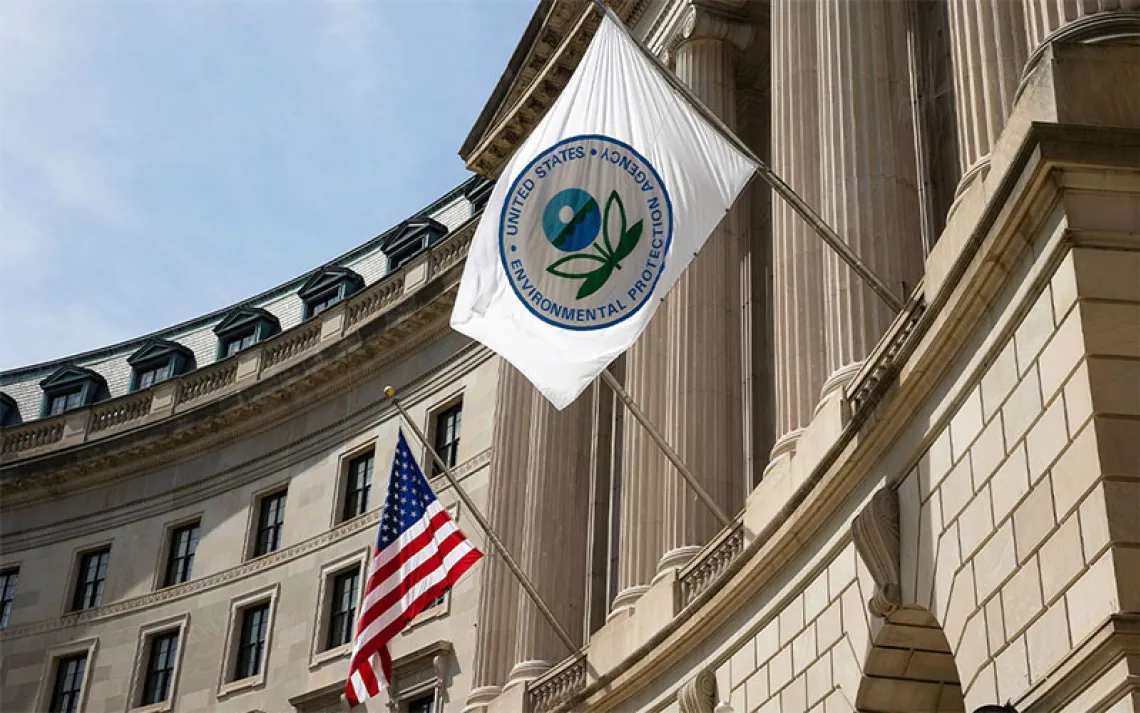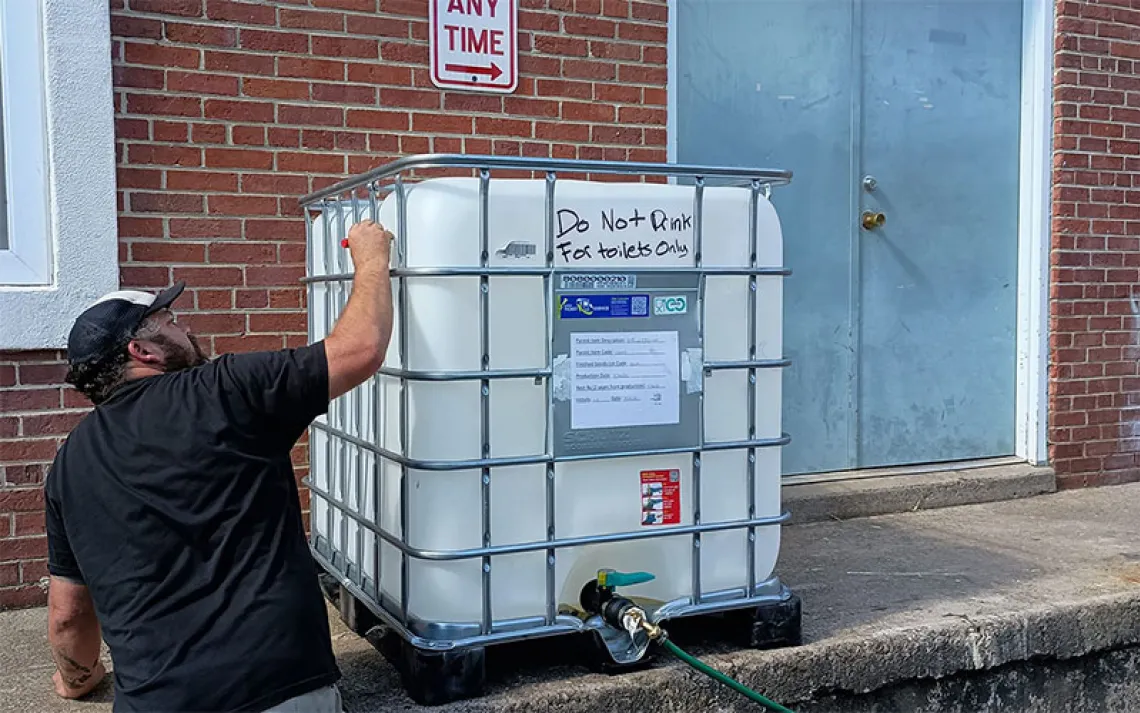Climate Litigation Against Big Oil Heats Up
Federal court considers whether to dismiss the SF and Oakland lawsuits

Photo by canbalci/iStock
Can any one group of actors be held responsible for the damages caused by global climate change?
That was the central question argued in federal court on Thursday as attorneys representing San Francisco and Oakland tried to beat back efforts by ExxonMobil, BP, Chevron, ConocoPhillips, and Royal Dutch Shell to have a judge throw out a potentially groundbreaking climate-change-related lawsuit.
The nearly three-hour hearing was the latest round in a burgeoning effort by cities and counties nationwide to hold major fossil fuel producers accountable for climate-change-related damages. Last year, seven California cities and counties sued the oil majors, claiming that their production and sale of fossil fuels—even as they were aware of the risks of CO2 emissions—constitute a public nuisance. Since then, similar suits have been filed by New York City; Boulder and two Colorado counties; and King County, Washington, home to the city of Seattle. (For more, see Sierra’s May/June cover story, “The Case for Climate Reparations.”)
Thursday’s hearing represented the first major test of such lawsuits as Judge William Alsup considered whether the Oakland and San Francisco complaint should move forward. The defendants challenged the lawsuit on a broad range of grounds, forcing Judge Alsup—a Clinton appointee known for being an idiosyncratic jurist—to say at one point, “There are a lot of arguments here. As soon as I focus on one, you run off to another one.”
The defendants’ arguments for dismissing the suit centered on two main questions: whether the Federal District Court for Northern California is an appropriate jurisdiction to decide the case, and, of larger concern, whether the lawsuits might be displaced by existing federal laws and policies.
Arguments hinged on a welter of legal terms such as “general jurisdiction” versus “personal jurisdiction” versus “specific jurisdiction,” while also touching on the distinctions between a holding company and an operating company. (Lawyers for Royal Dutch Shell maintained that the Netherlands-based multinational corporation is a holding company and therefore has no agents in California.) In the course of the arguments it became clear that the very scale of the contested issue—global climate change—further complicates the questions of jurisdiction. The defendants argued that it’s hard, if not impossible, to establish direct causation for a specific harm when the source of that harm is billions of people burning fossil fuels worldwide.
“[The plaintiffs] have decided that they do not want to and cannot disaggregate the conduct that leads to their harm,” Jaren Janghorbani, an attorney representing ExxonMobil, said. “They cannot attribute any of the harm they are alleging to the company’s activities in California.”
Jonathan Hughes, a lawyer representing BP, echoed that point. “The amount [of CO2 emissions from its California operations] that could be attributed to BP would be a fraction of a fraction of a fraction of a percent. And under the but-for argument, if BP hadn’t produced any fossil fuels, would they have still suffered an injury? The answer is yes. We are talking about a speck in the ocean.”
In response, Benjamin Krass, a lawyer representing San Francisco and Oakland, said the oil company attorneys were “muddying up” the but-for argument—the principle of tort law that establishes liability. “The end result of the defendants’ argument is that a company that does business everywhere should be held accountable nowhere.”
In the end, Judge Alsup said he didn’t have enough information to make a decision on the jurisdiction question. He gave both sides at least 60 days for a discovery process and depositions to establish whether each of the defendants has sufficient business operations in California for the two California cities to claim injury.
That left Chevron, the only defendant headquartered in California, to argue for dismissal based on the merits of the case. Chevron attorney Theodore Boutrous Jr. began by saying that the cities’ claims stretch federal common law and that “the plaintiffs are asking this court to throw caution to the wind.” Boutrous went on to argue that a complex issue like climate change “should be committed to those who write the laws rather than those who interpret them.” And Congress, Boutrous argued, has again and again passed laws in favor of fossil fuel production. “Congress has made clear that energy production is not a public nuisance; it is a public necessity.”
As a rebuttal, Steve Berman, the lead counsel for the two cities, argued that the cities’ complaints are not nearly as novel as the defendants make it seem—but instead merely the application of ancient laws to contemporary circumstances. “The law of nuisance has been around forever, and it has responded to changes in mankind. What we are doing is applying hundreds of years of law to a new situation.” Berman later said, “We allege that this was a deliberate nuisance, based on phony science.”
The San Francisco and Oakland case has generated a great deal of attention among legal scholars and climate change activists. In March, Judge Alsup held an unusual “climate science tutorial” as a preliminary step in the case—an event that attracted so big a crowd, the court had to reserve an overflow room. The case has also become a proxy battle of sorts. Fifteen states with Republican attorneys general—including Indiana, Colorado, Kansas, and Louisiana—filed an amicus brief in support of the oil corporations’ position. Meanwhile, California, New Jersey, and Washington filed their own brief backing the cities’ arguments.
The federal government has also weighed in. Two weeks ago the U.S. Department of Justice filed a brief supporting the five oil companies, and on Thursday, Eric Grant, a deputy assistant attorney general, was given time to express the federal government’s opposition to the San Francisco and Oakland suits. “It is upon Congress, not the courts, to prescribe policy in areas of special interest,” Grant said. “As this court knows, in respect to domestic emissions, the kind of national policy-making sought by plaintiffs is inappropriate. . . . [Climate change] is a complex issue involving trade-offs affecting a nation of more than 300 million people. Individual federal district courts lack the competence to undertake that task.”
The federal government’s arguments appeared to give Judge Alsup pause, even as he continued to express exasperation with the legal maneuverings of some of the defendants. “There is no court in the history of the universe that has extended this [federal common law] to global warming,” the judge said. “The United States is pointing to Supreme Court language that judges like me have to move slowly. . . . There’s no doubt there will be some sea rise. But will it be in 75 years or 25 years? We don’t know.”
To which Berman, the plaintiff’s attorney, responded, “That’s what the trial is for. Today we’re talking about a motion to dismiss.”
Whether the case will ever make it to a trial is, of course, now in the hands of Judge Alsup.
 The Magazine of The Sierra Club
The Magazine of The Sierra Club



